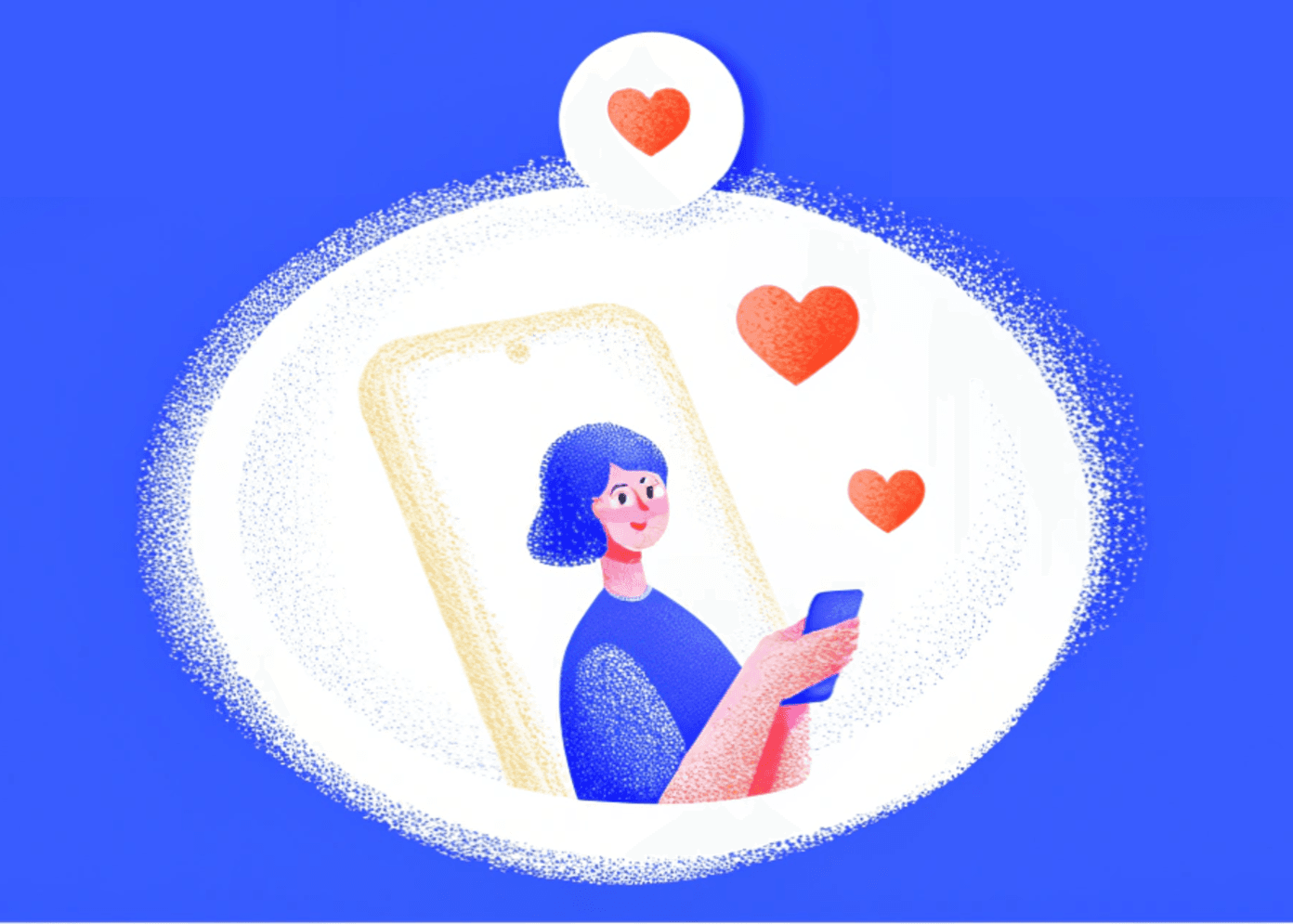Sexy healthcare: how the most popular intimacy coach app is designed?
What we don't talk about but design for
There are several startups in the space of sexual wellness.
It may seem like a taboo topic many would prefer to avoid yet for some reason for me it always seemed a natural part of the conversation. Just as you might experience issues with bladder or back pain, you may need help with sexual wellness.
Yet I realize that I have been working in the healthcare space for 7 years, and my perspective is heavily skewed.
This topic is still a taboo for many.
That’s why it was so interesting for me to check how modern brands approach building in this niche. On the one hand, we have mental healthcare, on the other one — a physical aspect of sexuality.
Here I must admit first — I was not interested in holistic femtech/male tech apps, we will leave this topic for another time.
I was searching for a sexual health app. Sex problem at its core, not one of many, not one as a result of hormonal imbalance or mental load, sexual problem in itself. An isolated and probably not the most “holistic” view of health yet it’s still a thing.
Let’s dive in, shall we?
Well, hello
Most of us have tried meditation and fitness apps before. You know the drill — generic meditation tracks, basic workout guides, forgettable content.
Senses break down personal wellness into four main areas:
Body awareness exercises. Guided movements that help you tune into how your body feels.
Personal meditations. Short guided sessions that dig a little deeper into the sexual aspect.
Educational videos. Talks about personal growth, relationships, and understanding yourself.
Relationship challenges. Quizzes designed for couples to explore communication and connection.
Looking at the reviews, it feels like the main value of the app is to support women and men while they are doing Kegel exercises. Let’s check if there is any other value the app provides.
Reviews from the App Store
Interestingly, many reviewers of the app are male:
Reviews from the App Store
Reviews from the App Store
Kegel exercise
When you tap, the screen shows you exactly how long to hold each contraction. The app handles all the timing for you.
The screen changes to let you know when to contract and when to relax — helpful for keeping your rhythm. Plus, it tracks your progress as you go along, so you can actually see how many reps you’ve done.
Kegel exercise
Video and audio
Yoga, educational videos, and meditations are not unique features and implementation-wise Senses have taken a common approach these days: micro-learning.
2–3 min videos, meditations under 5 min, yoga sessions with each position lasting 1 min only.
From a behavioral science view, it’s brilliant: minimal friction, optimal dopamine reinforcement cycles, and perfect alignment with established cognitive load theory.
Yoga in Senses app
These short interactions are designed to be:
Low-barrier to entry,
Easily consumable,
Immediately applicable,
Psychologically engaging.
I wrote about micro-learning in healthcare apps multiple times.
While microlearning is certainly becoming a common approach these days, Senses operates in the area of high sensitivity — sexual wellness.
They also have to take care of the emotional aspect of learning, making sure that the tutors are relatable, approachable, and empathetic.
Instructors and emotional connection
The instructor matters more than many would think. It’s about feeling comfortable with who’s teaching you. If someone doesn’t feel connected to the person guiding them through personal exercises, they’re not going to learn much.
Review from the App Store
Our brains release different chemicals — oxytocin, dopamine — based on how safe and understood we feel with a guide.
Representation is about creating a sense of safety and understanding. A user might feel uncomfortable with a certain type of instructor for deeply personal exercises about body awareness or emotional exploration.
For some reason, as a female user, I still had most of the instructors being male, both for yoga and meditations.
Relationship challenges
While many apps have the components of video education in small micro-learning episodes, meditations, and yoga exercises, what made Senses stand out from the crowd for me were the Challenges.
What makes it genuinely interesting is how it transforms communication. Most couples struggle with deep communication. We get stuck in a routine — work, chores, Netflix, sleep.
We’re afraid of judgment, of revealing too much, of being misunderstood. This design approach breaks that cycle.
The app tackles human fear of vulnerability through a psychological mechanism: creating a playful environment that transforms vulnerability from a threat into a collaborative game.
By randomizing questions across different emotional and cognitive domains, the app neutralizes our innate psychological defense mechanisms.
Some questions make you giggle, some make you think, some catch you completely off guard.
Sets of questions-prompts
The Neuroscience of Surprise
Many communication models create linear, predictable paths that allow people to prepare, filter, and potentially hide. These random questions short-circuit that system. When a partner receives a question like “What childhood memory still makes you cringe?” or “If your emotions were a weather pattern, what would they be?”, there’s no time to construct an elaborate, protective response. (source)
This randomness triggers a “spontaneity response” — a momentary state where our brain’s typical filtering mechanisms are bypassed. In this split second, we’re more likely to share genuine, unfiltered thoughts. It’s like creating a backdoor to authentic communication, sneaking past the guard of our usual emotional defenses.
This can lead to responses that are less influenced by conscious filtering or social desirability bias. The topics bounce everywhere: deep dives into personal values, playful explorations of imagination, glimpses into hidden parts of yourself.
These interactions are well-designed interventions that:
Reduce communication anxiety,
Build emotional intelligence,
Create shared vulnerability,
Develop mutual understanding beyond surface-level interactions.
Sure, authenticity in communication depends on various factors, including trust, context, and individual differences yet this approach may help partners connect more effectively.
Daily engagement
Each day Senses suggests 3 actions to take, for example, do the exercise, watch a video, and do a meditation. It’s framed as a personalized journey to connect with the body better.
Daily tips
Let’s play the game, maybe?
Most wellness apps fail because they’re boring. They forget that learning should feel more like a game and less like homework.
But what if it felt more like an exciting journey of self-discovery? Where each meditation, each yoga pose, each moment of reflection was part of a larger, more engaging story?
What if personal growth could be something you actually look forward to?
Review from App Store
Review from App Store
Many users mention that the content is repetitive and they see no reason to use the app for longer than one month:
Here’s where gamification could change the game.
Picture a system where each exercise becomes a mini-adventure. You earn points for consistency, unlock different levels of personal challenges, and see your progress in real, tangible ways. A dynamic map of your personal growth.
Senses app could:
Create a character or avatar that grows with users,
Design challenge streaks that feel like leveling up in a video game,
Introduce unexpected, fun rewards for completing different types of exercises,
Create personalized achievement badges.
Gamification isn’t about making everything competitive. It’s about making personal growth feel meaningful, trackable, and — most importantly — fun.
I do not suggest Senses has to embrace gamification in every aspect yet it could be another instrument in engaging the users more effectively.
Wrap up
The core focus of the app lies in helping people do Kegel exercises, breathing, and yoga exercises, and as a result, connecting with their body better.
Personally, I was more intrigued by their section of Questions — who knew that random prompts could be such a conversation starter? I loved their approach to making intimate communication feel less like an awkward first date and more like a fun game night.
Looking ahead, there’s tons of potential to make the app even more engaging, especially if they sprinkle in some of that gamification magic we talked about. After all, working on intimate wellness should feel less like a chore and more like an adventure you actually want to embark on.






